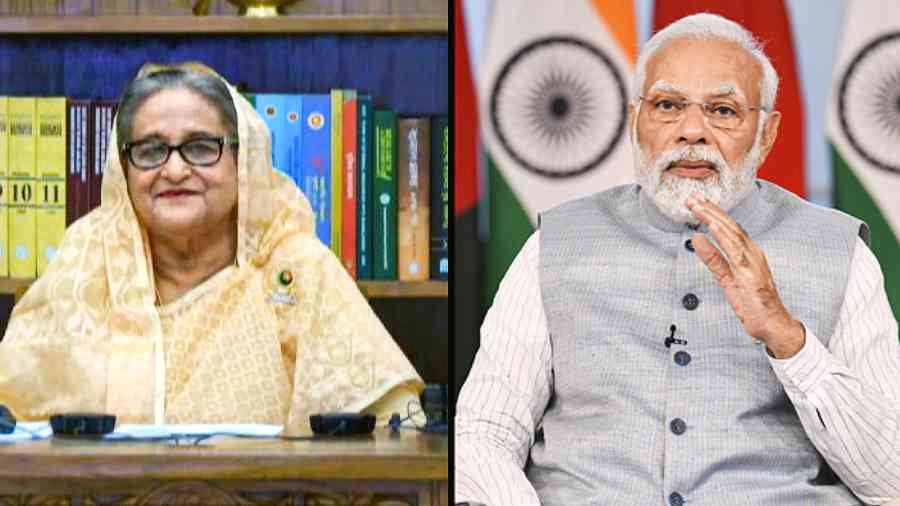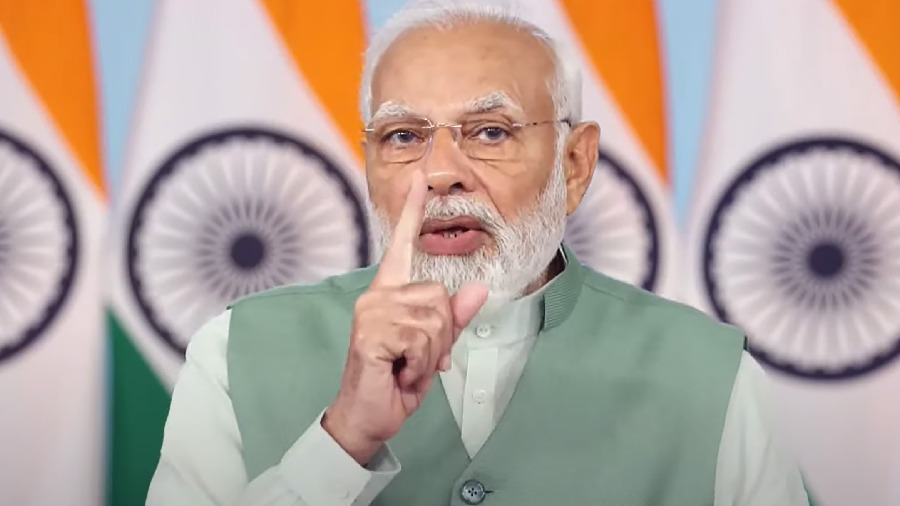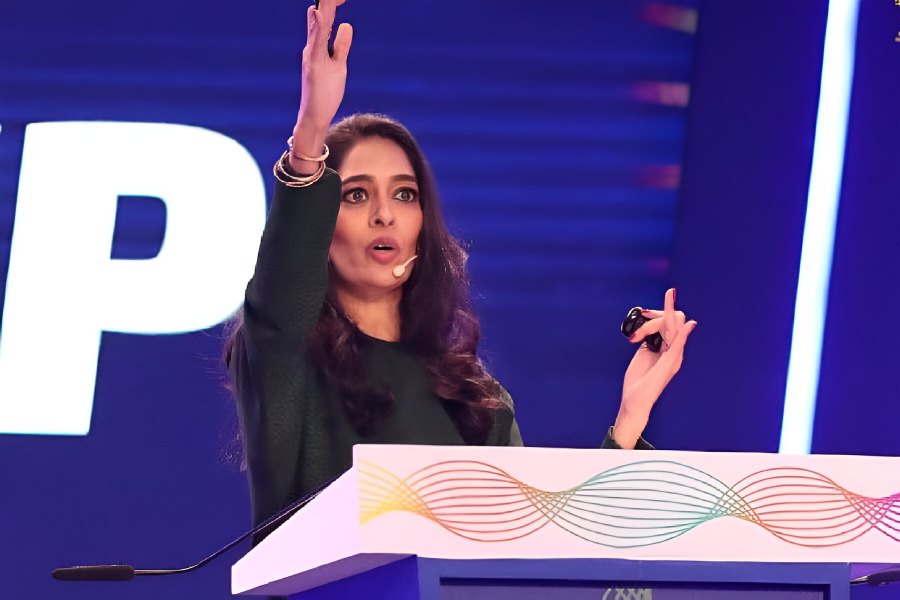Prime Minister Narendra Modi continued with his silence on Adani on Saturday though he would have had every reason to mention Adani Power, whose entry into Bangladesh owed to his patronage, at an event celebrating a new phase in Delhi-Dhaka cooperation over energy.
The occasion was the virtual inauguration of a 131.57km cross-border Indo-Bangla Friendship Pipeline, through which Bangladesh will import high-speed diesel from the Numaligarh refinery in Assam. Modi, in the presence of his counterpart Sheikh Hasina, spoke at length about the progress made in energy cooperation between their countries.
Eight years ago, Modi had laid the groundwork for Adani Power’s entry into Bangladesh as part of India’s commitment to improving the power situation in the neighbouring country and beginning an extensive cross-border power trade.
A joint declaration issued by the external affairs ministry after Modi’s Bangladesh visit in June 2015 said: “He (Modi) also conveyed that India can be a major partner in achieving this goal and many Indian corporates have the capacity to cooperate with Bangladesh in this endeavour. He requested Prime Minister Hasina for facilitating the entry of Indian companies in the power generation, transmission and distribution sector of Bangladesh.”
Two years after Modi’s visit, the Bangladesh Power Development Board (BPDB) signed a 25-year power purchase agreement (PPA) with Adani Power in November 2017.
The deal was for the Indian company to supply 1,496MW of electricity from a coal-based power plant at Godda in Jharkhand.
With Adani Power (Jharkhand) having begun supplying power to Bangladesh from the Godda plant earlier this month, Modi, perceived as the architect of the cross-border power trade, would perhaps have been expected to mention the fact. But he persisted with his silence on the Adani group, which has been in the thick of controversy amid allegations of accounting fraud and stock manipulation.
The Congress accuses Modi of preferential treatment of the group because of his proximity to Adani.
“In the field of energy, our mutual cooperation has been very successful.... Today, India supplies more than 1,100MW electricity to Bangladesh,” Modi said at Saturday’s programme.
“The first unit of the Maitree super thermal power plant (a 50:50 joint venture between the BPDB and India’s NTPC) is already operational. The second unit will also be operational soon.”
Modi said the petroleum trade between the two countries had crossed $1 billion. He spoke of how the pipeline — through which Dhaka is to import diesel at a cheaper cost and with lower carbon emission — would give a push to the Bangladesh economy by facilitating the growth of both agriculture and industry.
“Under normal circumstances, a mention of the deal between Adani Power and the BPDB in the Indian Prime Minister’s address would have been natural, but we all know the controversies surrounding the group in India,” a source in Bangladesh said.
Another reason behind the act of omission could be the controversy in Bangladesh over the deal.
Segments of Bangladesh civil society and media have demanded scrapping of the purchase deal with Adani Power, calling it “unfair” and steeped in a “profiteering motive”.
Over the past one month or so, several news reports in the Bangladeshi media — based on the 163-page PPA — have contended that Dhaka would be paying through its nose for electricity from the Godda plant.
That Bangladesh authorities too had apprehensions about the cost of electricity from Adani Power (Jharkhand) became clear in recent months with the BPDB seeking revisions to the PPA, which prompted representatives of the conglomerate to rush to Dhaka at least twice to assuage the concerns.
“The Adani representatives were here last week too. They have given an assurance that the cost of electricity from their plant would be on a par with — or even cheaper than — that from other thermal power plants,” a source in Bangladesh said.
Multiple sources in the Bangladesh government said that although the PPA was “iron clad”, the process of bargaining with the Adani authorities had become easier because of the problems the conglomerate is facing in India.
“The company is likely to raise its first bill to the BPDB in April. It will become clear then that we have struck a favourable bargain after all the controversy,” a source said.
“The pipeline will play a significant role in protecting the energy security of our people and quicken the country’s development,” Hasina said.












